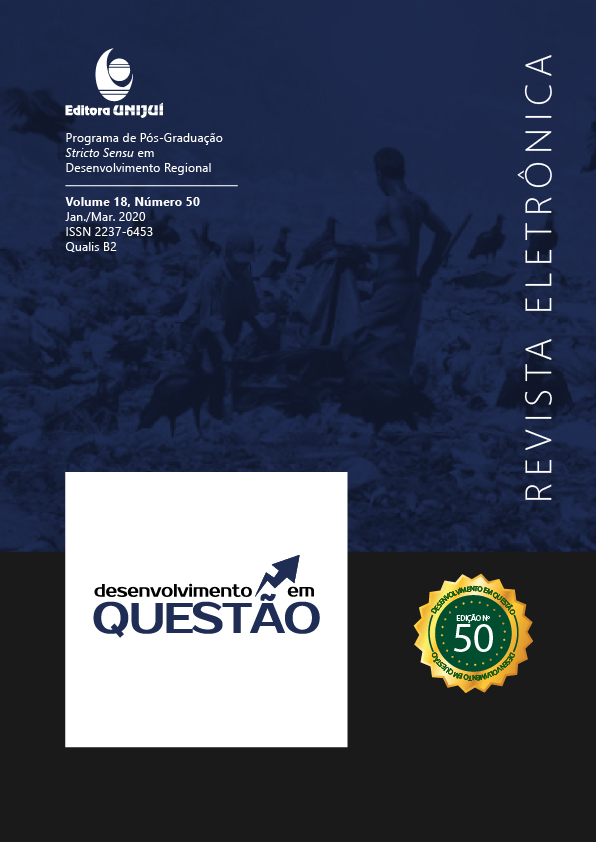Ranking of value creation of South American companies: multicriteria study using DP2 and VIKOR methods
DOI:
https://doi.org/10.21527/2237-6453.2020.50.308-324Keywords:
Value Creation; Methods Muticriteria; DP2; VIKOR; South America.Abstract
This study aimed to analyze the ranking of South American companies from the multi-criteria DP2 and VIKOR, considering the creation of value. For this, the information available from companies from four countries (Argentina, Brazil, Chile and Peru) was analyzed, corresponding to a total of 69 companies. In addition, the data referred to the period from 2011 to 2015. It is worth mentioning that in order to measure value creation, the variables EVA and MVA were chosen. In order to elaborate the value creation ranking for EVA, MVA and EVA / MVA, the multicriteria DP2 and VIKOR methods were used. From the results, it can be concluded that the companies of the four South American countries analyzed presented very close positions and, in some cases, were equal in the two analyzed rankings (EVA and MVA). Therefore, the methods were efficient to identify the companies that create the most value in the analyzed countries, which generates more confidence on the part of the investors, who can consider the two variables individually or, analyzed together. Value creation is essential for companies that are looking to leverage more and more. The research becomes relevant since the variables used to carry out this study are essential when it comes to creating value worldwide. In addition, it helps companies choose the best investment options among the companies that have submitted the necessary information, given the wealth presented here through rankings.
Downloads
Published
How to Cite
Issue
Section
License
By publishing in Revista Desenvolvimento em Questão, authors agree to the following terms:
All works are published under the Creative Commons Attribution 4.0 International License (CC BY 4.0), which allows:
Sharing — to copy and redistribute the material in any medium or format;
Adaptation — to remix, transform, and build upon the material for any purpose, even commercially.
These permissions are irrevocable, provided that the following terms are respected:
Attribution — authors must be properly credited, a link to the license must be provided, and any changes made must be indicated.
No additional restrictions — no legal or technological measures may be applied that legally restrict others from doing anything the license permits.
Notices:
The license does not apply to elements that are in the public domain or covered by legal exceptions.
The license does not grant all necessary rights for specific uses (e.g., image rights, privacy, or moral rights).
The journal is not responsible for the opinions expressed in the articles, which are the sole responsibility of the authors. The Editor, with the support of the Editorial Board, reserves the right to suggest or request modifications when necessary.
Only original scientific articles presenting research results of interest that have not been previously published or simultaneously submitted to another journal with the same purpose will be accepted.
Mentions of trademarks or specific products are intended solely for identification purposes and do not imply any promotional relationship by the authors or the journal.
License Agreement (for articles published from 2025 onward): Authors retain the copyright to their article and grant Revista Desenvolvimento em Questão the right of first publication.











